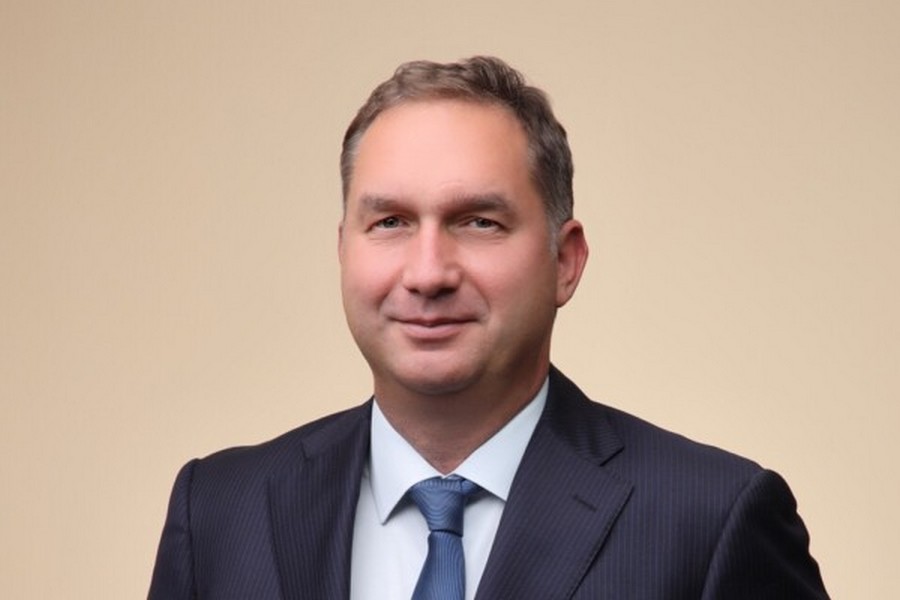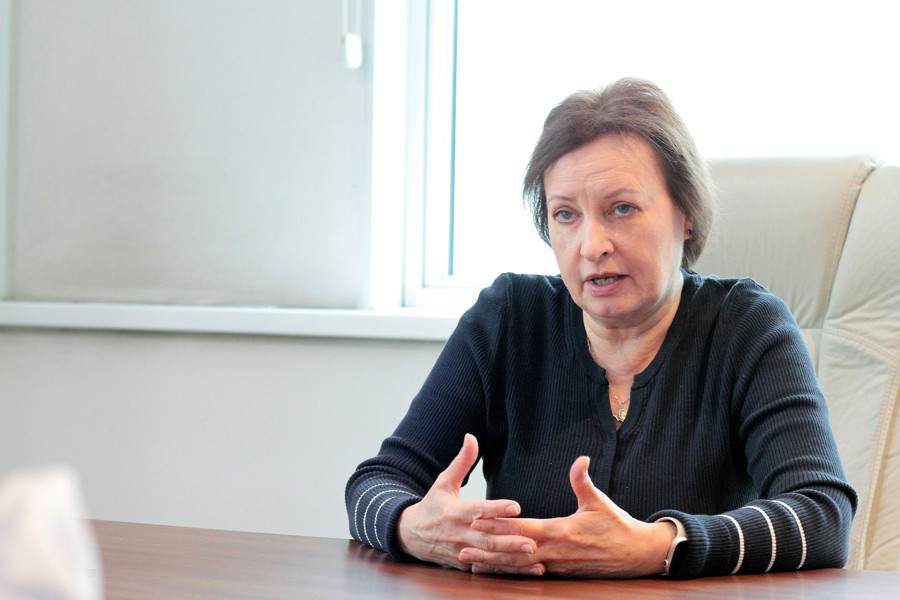Chairman of the Management Board of the Eurasian Bank Valentin MOROZOV:
BANKS PARTICIPATING IN THE FINANCIAL SUSTAINABILITY PROGRAM WOULD PROBABLY HAVE TO SET UP EXTRA RESERVES UNTIL 2022

In early August the National Bank of Kazakhstan began an asset quality review of 14 banks. It is planned to complete the review in late November - early December 2019. Chairman of the Management Board of Eurasian Bank Valentin MOROZOV told Interfax-Kazakhstan what the banking sector will get from the asset quality review (AQR), what the state of the sector is in Kazakhstan and what to expect from forgiveness of loans for the general population.
- How do you assess the development of the banking sector in Kazakhstan?
- In the past 10-15 years banks around the world have been experiencing uneasy times. Since a mortgage crisis in America and Europe, a significant number of banks have experienced financial difficulties due to sub professional risk management. And in the past 10 years we have been reaping the consequences of what happened. This was in Europe, America in Russia, and also in Kazakhstan. As a result, banking supervision has been tightened significantly. The Basel standards have begun arising; requirements for bank risk management from regulators around the world as well as requirements for reporting transparency have been tightened. Kazakhstan could not stay away from this. Supervision and transparency strengthening is part of the overall trend.
- Now is there talk about the second wave of the financial sustainability program?
- This is the continuation of the first wave rather than the second one, but the faster the banking sector goes through all stages of rehabilitation the better for both the country and the banking sector. To this end, the AQR of second tier banks is to be carried out in order to understand what problems are in the banking sector, what to do about them in order not to drag this out through life. Most likely, banks participating in the financial sustainability program will have to set up extra reserves and improve the quality of their assets much earlier than by 2022. All actions of the regulator and government are aimed at improving the financial sector.
- Are the shareholders ready to bail out the bank in case of need?
- Yes, of course. Joint responsibility is a must for the rehabilitation program. Moreover, the state program imposes very strict obligations on shareholders, so only the limited number of banks could sign up to the program. Our shareholders have already fulfilled most of their obligations regarding additional capitalization and ahead of schedule. Just the other day it was decided to direct the bank's retained profit for 2018 instead of paying dividends - and this is more than 11 billion tenge - towards reserve capital.
- What are the results of the Eurasian Bank’s participation in the program to boost financial sustainability?
- The result, I think, satisfies everyone. First of all, the regulator and shareholders. The bank shaped a sufficiently strong basis for further development in general - according to the results of 2018 and the first half of this year the bank created provisions totaling 125.7 billion tenge (385.42 tenge/$1) and improved the loan portfolio by adding another 51.4 billion tenge. We want to complete this program ahead of schedule. The advantage of the state program is that it helps create immediately lacking reserves. Money allocated for the program by the state is invested in subordinated bonds; this is a market tool, not for free. We must repay this money within 15 years.
- How does the bank work on improving the loan portfolio quality?
- Just like everyone else. We collect those loans that can be collected, what we can restructure, we restructure, where we need to sue - we are suing. We did not invent anything new; there are no unique recipes whatsoever. Since the beginning of the year the volume of the bank’s non-performing loans (NPL) overdue for 90 days decreased by 7.5 billion tenge to 52 billion tenge. The bank took up 7th place by this indicator among the banks of Kazakhstan.
The share of NPL 90 in the bank's loan portfolio decreased by 0.7 p. p. to 8.3% at the beginning of July. It is good as this is 1.1 p. p. lower than on average across the market.
Since the beginning of the year the bank has climbed two positions to 8th place within the top ten banks regarding the loan portfolio NPL90 share among Kazakhstan’s banks. In terms of the ratio of the volume of provisions formed with regard to the loan portfolio (coverage ratio), the bank's position has also improved since the beginning of the year - 4th place (14.9% of the loan portfolio).
- The Eurasian Bank is a stable leader in auto lending. Where does the bank see new niches for business growth?
- The bank changed its strategic focus to retail in 2017. Due to the product line and services expansion in 2018 this segment accounted for 33.2% of assets (29.5% a year earlier) and 39% of liabilities (40.6% in 2017). This trend has been on the rise in 2019. The segment generates 63.2% of interest income and 88% of commission income. In the total revenue the retail business accounts for 56.4%. The growth of the retail portfolio amounted to 8% and grew from 354.3 billion to 383.9 billion tenge in July.
- What are your expectations from AQR? It is believed that AQR will not "open America" for the regulator and market participants? How do you see the task and the AQR results?
- We recently underwent the National Bank’s review so there will be neither surprises for us nor for the regulator. The AQR fundamental importance is that the process goes according to international standards. After the review is carried out, it will definitely signal to the entire market, both internal and external, that Kazakhstan’s banking system has passed the review, which is well-known and understandable for everybody. AQR’s huge advantage is in the recognition of methodology and standards.
- What do you expect from the fine and penalty forgiveness program?
- I see the main narrative in increasing financial literacy and responsibility of borrowers, because not everyone understands the consequences of the financial decisions they make. It is very important for the government to strengthen dialogue with citizens regarding their financial awareness. In order for citizens to know what loans are like, when they are good and when not, how to correctly and responsibly plan their future to improve the quality of their lives. And the first step has already been taken. I think this program should be examined in the ‘long way to go’ context in order to enhance Kazakhstani residents’ financial literacy.
- Thank you for the interview.
September, 2019
© 2026 Interfax-Kazakhstan news agency
Copying and use of these materials without reference to the source is prohibited
Archive





